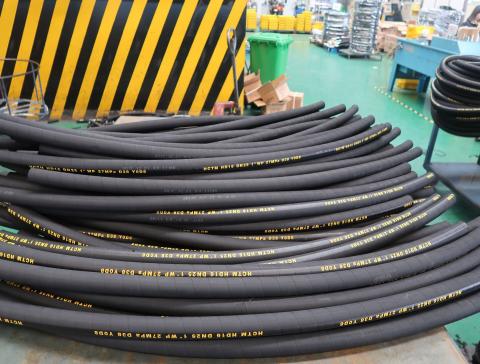How to prolong the hydraulic hose's life
If you want to extend the life of your hydraulic hoses, you need to follow some simple steps. First of all, it's important to keep them away from harsh surfaces and high-heat components. To prevent them from kinking, you can use hose wraps and guards. A pressure release valve can also help reduce the strain caused by sudden changes in pressure. Lastly, it's important to ensure that you don't expose the hose to direct sunlight.
When you replace a hydraulic hose, be sure to prepare the hydraulic system before starting the process. If the hose is connected to a hydraulic pump, make sure to let it go before you attempt to change it. It is also a good idea for equipment to be lowered. Clear your workspace and take photos of the hose's route. This will help you to replace it properly.
Lastly, you should always inspect your hydraulic hose on a regular basis. This will prevent any damage and prolong its life expectancy. Proper maintenance and care can extend the life of your hydraulic hose up to five years. Make sure all clamps are securely attached to the hose.
Hydraulic hoses are strong and durable but can be damaged by rough handling. Exposure to sharp concrete, harsh temperatures, and UV rays can all cause a hydraulic hose to fail prematurely. This can cause serious damage to the internal components.
how to store hydraulic hoses
Proper storage is essential to extend the life expectancy of hydraulic hoses. Proper storage will help them resist environmental factors and prevent premature failure. Keep hoses out of direct sunlight, out of direct contact with industrial equipment, and away from chemicals. A safe working environment is also possible with good storage.
The first thing to consider when storing hydraulic hoses is the temperature. The temperature at which hoses should be kept should not exceed 70 degrees Fahrenheit. Ideally, you should store them in a dry, cool, and dark place, out of direct sunlight. You can also ask your hydraulic hose supplier for storage tips.
Another way to prolong the life of your hydraulic hoses is to monitor how you use them on a daily basis. Hoses can break down prematurely due to exposure to high temperatures or extremes in pressure. The best way to avoid premature hose failure is to consult with an expert in hydraulic hoses. Moreover, it is also important to regularly inspect the hose and make sure that all the clamps are tight.
Hydraulic fluids can contain toxic chemicals that could cause injury. Hydraulic fluids can cause injury if they come into contact with the skin. Contact emergency medical care immediately. Because of their superficial nature, injection injuries are often overlooked and misdiagnosed.
How hydraulic hoses can be used
Before you replace a hydraulic line, prepare the hydraulic system. Release the pressure from the system and lower any pieces to prevent damage. Clear the area to ensure safety. It's helpful to take a photo of the hose routing before making any changes.
There are different types of hydraulic hoses, and each type has different safety and performance standards. Some hoses are safer than others, so you'll want to choose the type that meets your application's requirements. Some hoses meet SAE standards while others have EN or ISO specifications. If you're unsure of the standard for the hydraulic hose, check with the manufacturer.
A hydraulic hose is a flexible tube that carries hydraulic fluid from one component to another. The hose is usually made of polyurethane or thermoplastic and has a reinforced inner layer that provides strength as well as flexibility. To reduce wear and damage, the hose can be made up of multiple layers.
To maintain the longevity of hydraulic hoses, you need to follow their working temperature specifications. Usually, these are between 90 and 150oC. Using them in environments with temperatures that are too high can cause deterioration and loss of flexibility.

